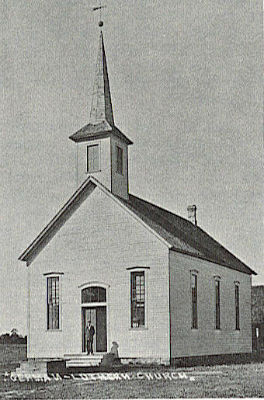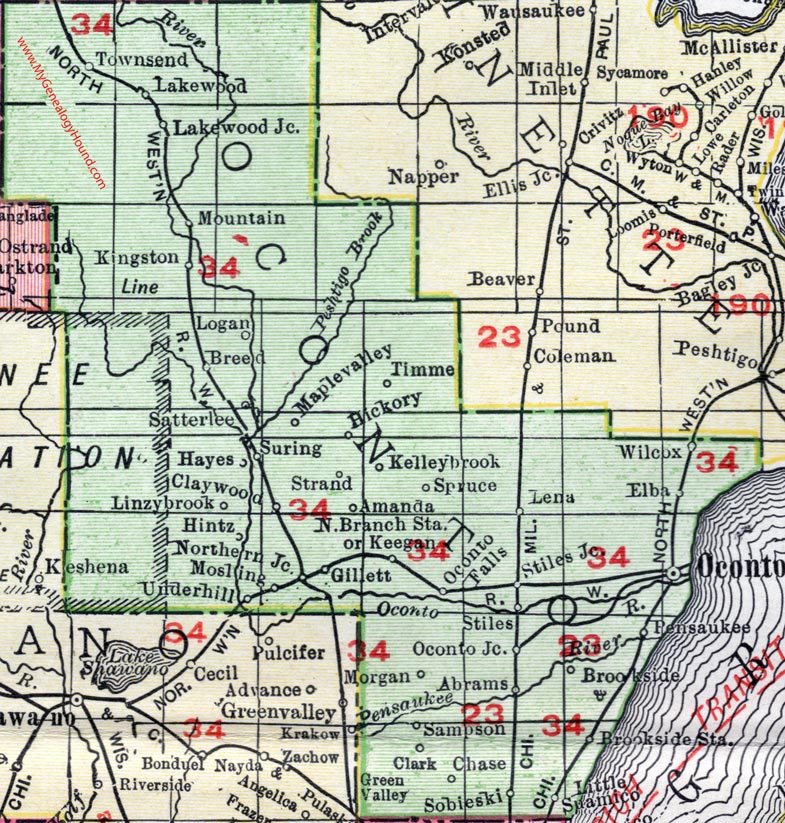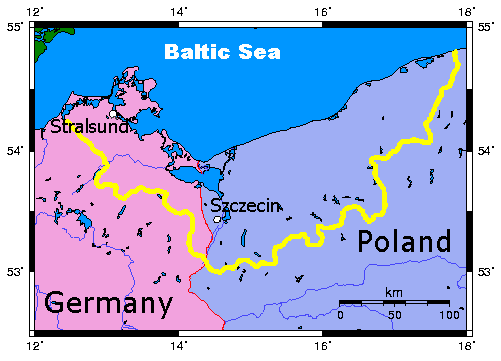The youngest son of Carl F. G. Behling, August Behling, immigrated to Wisconsin in 1870, and temporarily settled in the town of Ottawa located in Waukesha County.
It was in Waukesha County where he and his wife, Minnie, welcomed two more children, making them a family of seven. Augusta “Gusty” M. Behling joined the family in July of 1872 followed by Albert August Ferdinand in December of 1873.
Early Years
Carl Friedrich August Behling was born in Kahlen, Kammin, Pomerania on July 28, 1837. He was the youngest of eight children to Carl Behling and Eva Behling (nee Buhrow) and would go by the name of August for the majority of his life. On July 29, 1837, he was baptized at the Evangelical Church in Zirkwitz and in 1859, at this same church, he married Wilhemine “Minnie” Caroline Dorothea Schulz.
Life in Pomerania
Pomerania is a historical region on the southern shore of the Baltic Sea. The name itself comes from the Pomerani word Pomorze, which means “land by the sea”. The region is generally flat, a coastal lowland, but has numerous rivers and lakes. After glaciers scraped the land thousands of years ago, it became prime conditions for growing potatoes and grains, such as rye. Early settlers of the region were Teutonic and Slavic tribes. They left no written records so other sources, such as the Romans, were used to learn of its early history. During the time of Christ, the Goths, a Germanic tribe, occupied the land. Then during the the Middle Ages, the Slavic tribes, Pomerani and Kaschubi, began establishing themselves along the shores of the Baltic Sea. It was from these tribes that the Bogislaw family emerged and began ruling Pomerania until 1815, when it was established as a province of the Kingdom of Prussia and then, in 1871, it became part of the German Empire. Finally, in 1918, it was considered a free state until it was dissolved in 1945 following WWII.
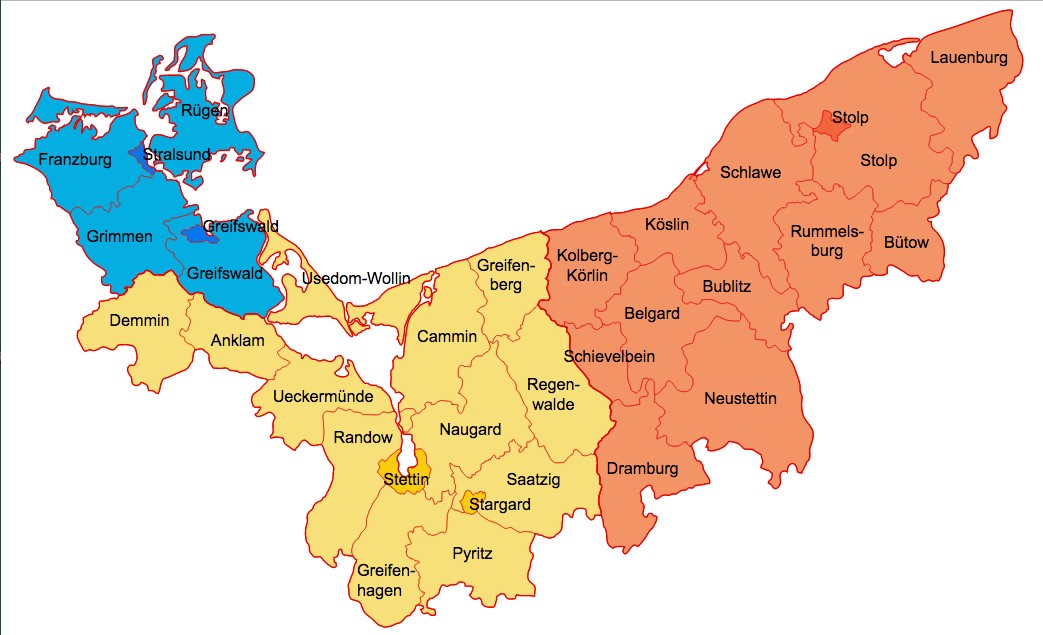
German Counties (Kreise) of Pomerania (Pommern) in 1871
Blue: Regierungsbezirk Stralsund
Gold: Regierungsbezirk Stettin
Orange: Regierungsbezirk Köslin
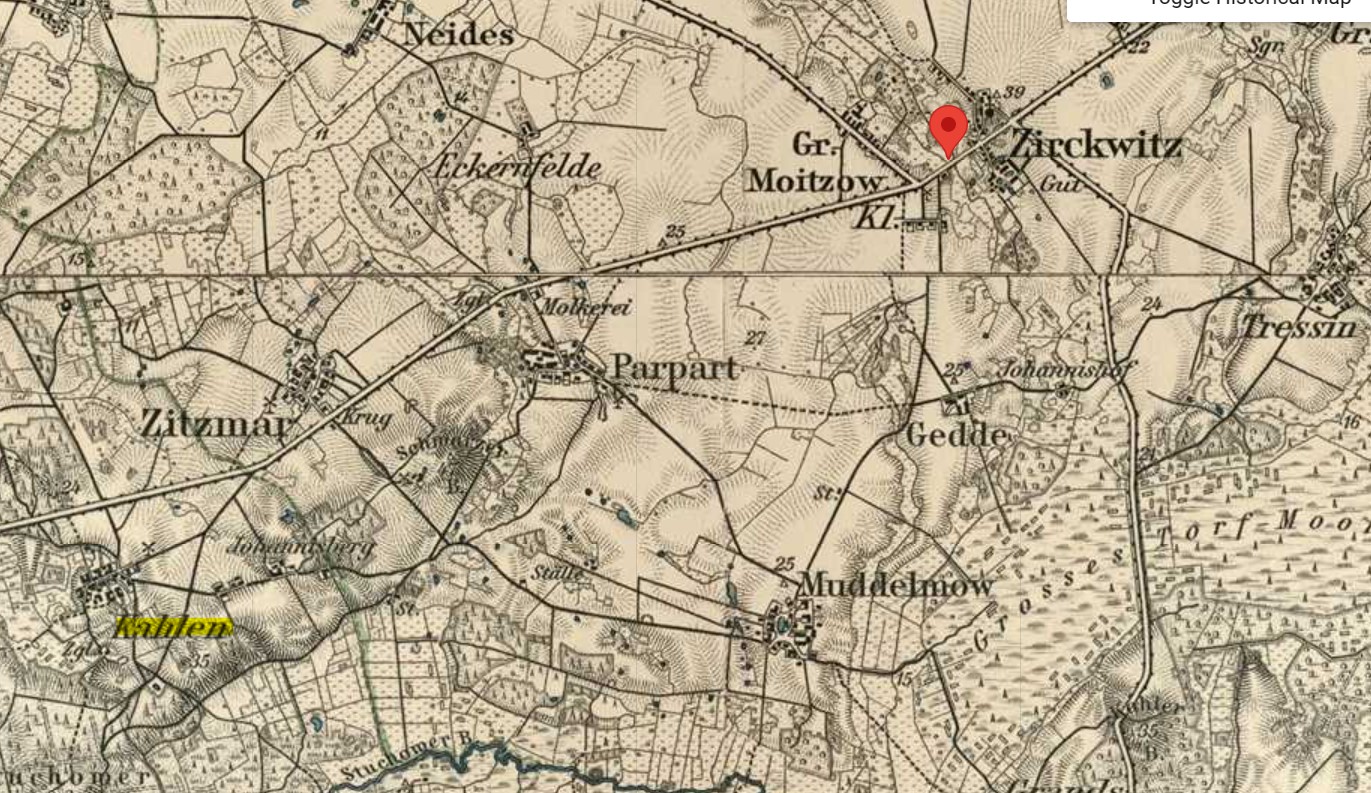
Interesting to note is the village, Zirkwitz, where August Behling was baptized and married, has a long and unique history in Pomerania. A short version of this story includes the name of the village itself. Cerkwica or Zirkwitz actually means the church. In 1124, a missionary named Otto von Bamberg, also known as the Apostle of Pomerania, formerly baptized the Pomeranian population in the village. At the foot of the church hill, there is a well that is said to have been used by the Bishop for the first Christian baptisms in the area. In 1920, to commemorate this act, a monument to Otto was built alongside what had become known as the Otto fountain.
As to why August Behling immigrated to Wisconsin is not immediately known. According to various German census records, August was identified as a day laborer, laborer and a rural worker. After he moved to the U.S., census records reveal him to be a farmer. It is highly probable that he worked on farms while he lived in Germany and with the vast amounts of inexpensive land available in America, it’s likely he believed there was better opportunity overseas. The interest with moving to Wisconsin, specifically, could be attributed to the fact that the land in Wisconsin and Minnesota is very similar to that of Pomerania. In fact, the vast majority of Pomeranian immigrants settled in Wisconsin during the 1800s, including other family members of both August and Minnie Behling.
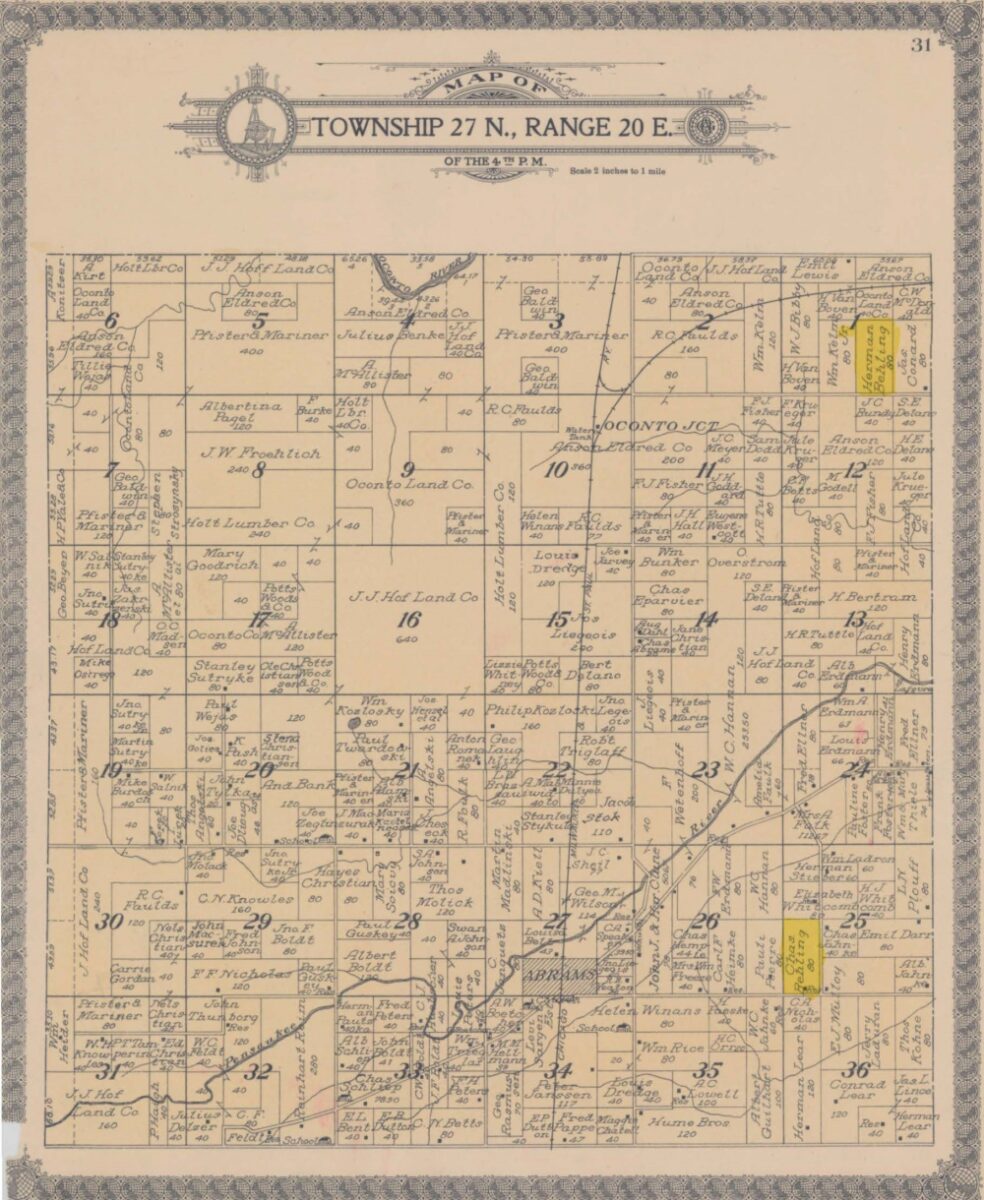
~ From Wisconsin Historical Society
Personal life
Between the years 1880 and 1885, August moved his family from Waukesha County to the Town of Pensaukee in Oconto County. The 1912 Plat Map of Oconto County reveals that his two oldest sons each owned farms. Within Section 25 of the map, Charles Behling is shown to have 80 acres and within Section 1, Herman Behling is sees as also owning 80 acres. Although records show August did farm his own land, plat maps or land records detailing it’s whereabouts are not readily available. Sadly, August passed away in 1894 at the age of 56. His obituary was printed on March 3, 1894 in the Oconto County Reporter. It read:
The Silent Reaper
Behling
Friday, Feb. 23, August Behling died at his home in Brookside, aged 56 years, 6 months and 13 days, the funeral being held from the Lutheran church at that place on Monday. He had been president of the church for years, was influential and popular, and was followed to his last resting place by sorrowing neighbors and life-long friends. He leaves a wife and five children: Herman, Albert and Charles, and Mrs. Charles Peters, of Brookside and Mrs. H. F. Becker of this city.
From another page:
August Behling of the town of Pensaukee was buried yesterday. He was a typical German. Coming to this country he settled on a new farm in Pensaukee 12 years ago, and by industry cleared a large part of it and erected comfortable buildings. He was a man generally beloved by all who knew him, as was attested by the presence of fifty-nine teams at his funeral. Though only two score years and sixteen he could not withstand the terrible malady that prostrated him. He leaves a wife, five children, a cousin and a brother-in-law, with many friends to mourn their loss.
Legacy of August Behling
The happiest moments of my life have been the few which I have passed at home in the bosom of my family.
Thomas Jefferson
Despite having a short lifespan, August dreamed big and left behind an amazing legacy. He was one of two children of his parent’s family to leave Germany for a better life in the U.S. It was in Wisconsin that he achieved the great feat of owning and maintaining farmland, something that was elusive in his native country. He and his wife Minnie had five children who went on to have families of their own. Now, his legacy continues to live on in his descendants, which currently spans six generations. Many of these descendants have made their homes throughout the United States and are building their own legacies. Much thanks is owed to a man who took a leap of faith back in 1870.
